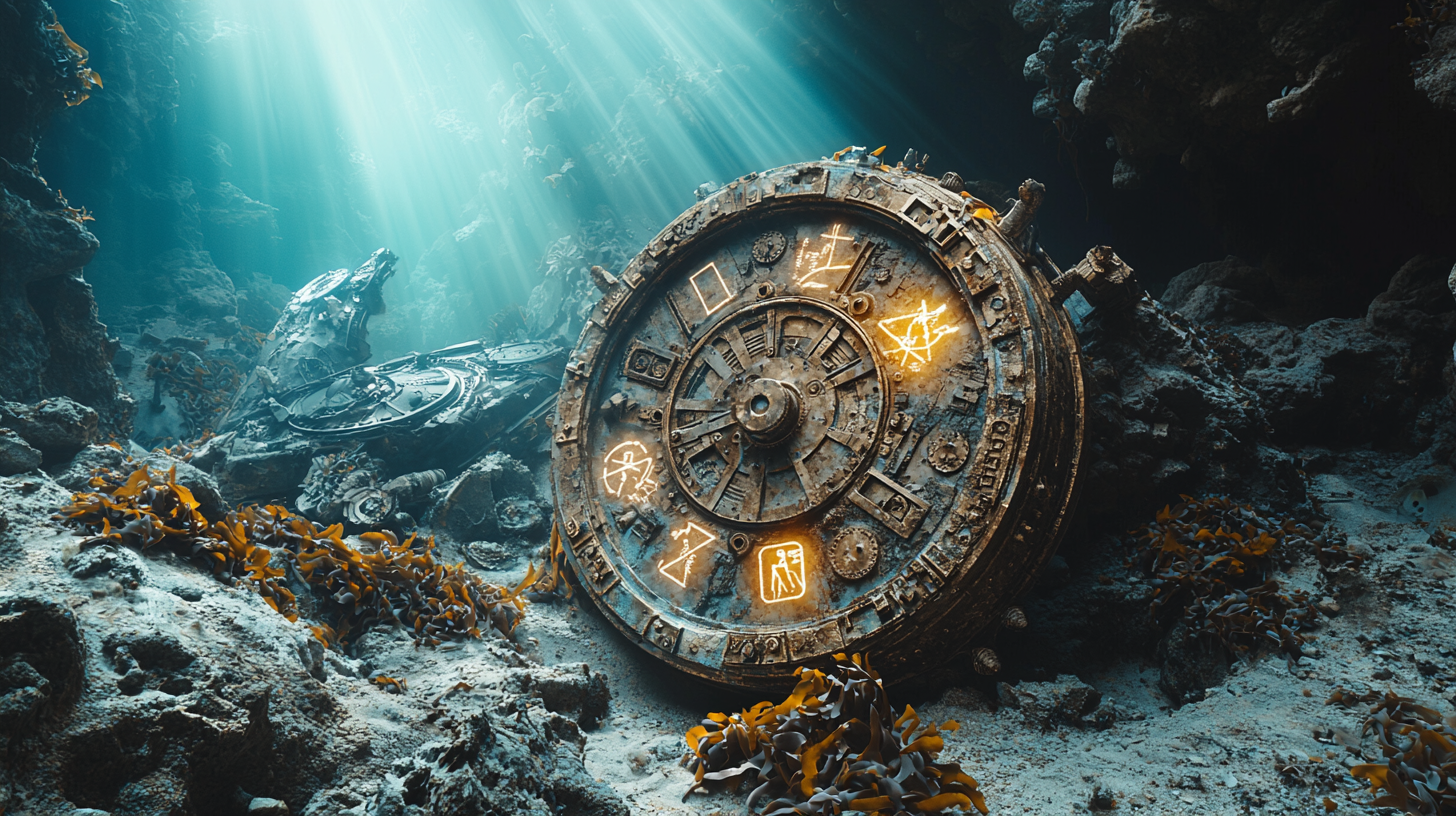The world’s most mysterious ancient artifact, the Antikythera Mechanism, has long baffled historians and engineers alike. Now, thanks to the intervention of cutting-edge AI and a very persistent group of researchers, a new theory has emerged—and it’s out of this world. Literally.
According to a recently published study, the Antikythera Mechanism wasn’t designed to track the stars for earthly purposes at all. Instead, it appears to be the shattered remains of an alien spacecraft’s navigation computer. Yes, the ancient Greeks may have been tinkering not with their own technology, but with the cosmic equivalent of a broken alien GPS.
“Recalculating Route: Earth”
Dr. Nikos Papadopoulos, lead researcher at the Hellenic Institute of Unexplained Relics, explained the breakthrough: “We ran a detailed analysis of the mechanism’s gears and inscriptions using AI pattern recognition. At first, we thought it was mapping planetary orbits. But the AI flagged symbols matching star systems lightyears away—including directions like ‘Next wormhole in 400 parsecs.’”
Further deciphering revealed a key phrase engraved deep within the gears, roughly translating to: “Proceed to nearest habitable zone. Warning: Detour detected.” Historians now believe the mechanism crashed alongside its ship somewhere in the Aegean Sea after what one scholar describes as “the universe’s worst case of alien rerouting.”
Ancient Greeks: World’s First Salvagers
Historians speculate that local Greek sponge divers discovered the alien wreckage around 150 BCE and, assuming it was simply advanced craftsmanship, salvaged the Antikythera Mechanism without realizing they were handling interstellar tech. “Imagine finding a Tesla steering wheel washed ashore in 400 BCE,” said Dr. Papadopoulos. “You wouldn’t drive it—you’d turn it into a sundial.”
Evidence suggests early tinkerers attempted to repurpose the gears, likely unaware that they were one wrong turn away from initiating a self-destruct protocol or accidentally hailing another galaxy.
Aliens & Ancient Maps: A Timeless Miscommunication
Further AI-assisted translations suggest the original alien crew may have suffered from navigational errors similar to Earth drivers ignoring their GPS. One fragmented inscription reads: “Ignore recalculating. Manual override engaged. Can’t be worse than last time.”
The resulting crash apparently left the Antikythera Mechanism lodged in ocean sediments, patiently awaiting 21st-century archaeologists to rediscover it—and piece together history’s most confusing lost-and-found claim.
Experts Warn: Maybe Don’t Try to Turn It On
While researchers are excited by the find, some caution against attempting to reactivate the device. “There’s a non-zero chance this thing could summon its original owners,” joked Dr. Papadopoulos. “Or worse, start giving us directions to Andromeda without an off switch.”
Plans are underway to exhibit the Antikythera Mechanism’s newly interpreted alien inscriptions at museums worldwide. Visitors are advised not to input any coordinates “just to see what happens.”
The Final Verdict: Your GPS Might Suck, But At Least You’re Not In Space
As it turns out, humanity’s oldest analog computer might also be the galaxy’s first case of a navigation system failure. And next time you’re cursing your phone’s GPS for taking you down a dead-end street, remember: somewhere out there, long ago, an alien crew trusted a mechanical device and ended up crash-landing on Earth—and accidentally kickstarting the myth of ancient Greek engineering brilliance.


